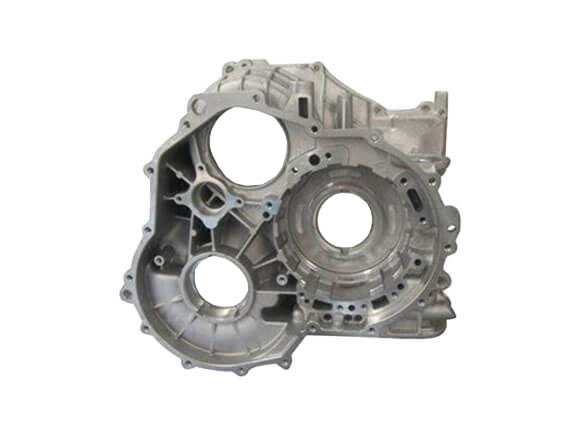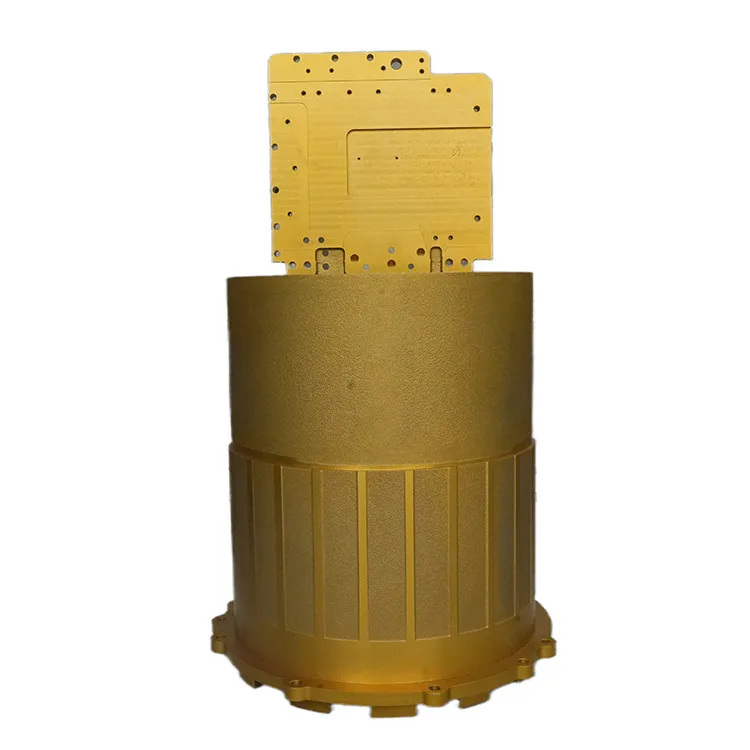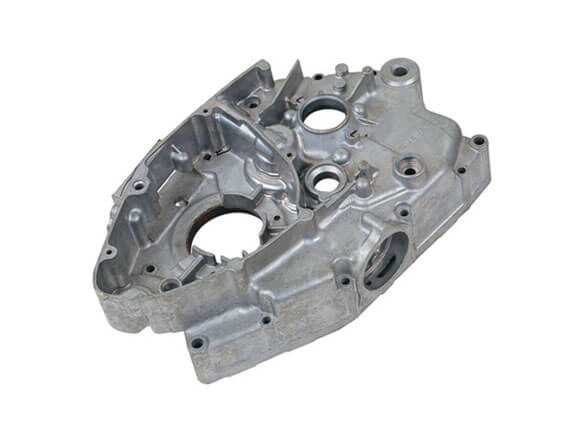Checking Out the Cutting-edge Procedures Behind Modern Light Weight Aluminum Foundry Workflow
Modern light weight aluminum shop procedures are going through significant transformation. Automation and AI are improving production methods, boosting both performance and accuracy. The assimilation of 3D printing is improving mold and mildew production, while sustainability methods are ending up being more important. Each of these improvements plays a vital role in redefining the sector. However, the ramifications of these changes expand past plain production effectiveness. What chances and challenges lie ahead for light weight aluminum shops in this evolving landscape?
The Duty of Automation in Aluminum Foundries

Additionally, automation adds to improved security standards within the factory atmosphere. By moving hazardous jobs to equipments, human employees can concentrate on supervisory functions and quality assurance, minimizing the danger of mishaps. Furthermore, information analytics stemmed from automated procedures supply important understandings into operational efficiency, causing better decision-making and constant improvement. As the demand for aluminum products grows, the adoption of automation innovations will likely broaden, even more transforming the landscape of light weight aluminum factory operations.
Improvements in Spreading Technologies
Recent innovations in casting technologies are changing light weight aluminum shop operations. Innovations such as 3D printing integration, advanced alloy formulations, and automated procedure optimization are improving effectiveness and item quality. These advancements are pivotal in satisfying the developing demands of the market.
3D Printing Integration
Incorporating 3D printing technology right into light weight aluminum factory procedures has revolutionized conventional casting approaches, boosting both effectiveness and precision. This ingenious approach allows for the quick manufacturing of intricate molds and cores, greatly minimizing lead times and material waste. By using additive manufacturing, factories can develop elaborate geometries that were impossible or previously tough to attain with standard methods. The flexibility of 3D printing also allows quick design adjustments, cultivating a more dexterous manufacturing process. Furthermore, this assimilation sustains using lightweight frameworks, which is progressively essential in markets such as automobile and aerospace. As light weight aluminum factories proceed to take on 3D printing, they place themselves at the leading edge of technological development, driving improvements in product top quality and functional capacities.
Advanced Alloy Formulations
The development of sophisticated alloy formulations has substantially boosted spreading innovations in light weight aluminum shop operations. These solutions incorporate different components, such as silicon, copper, and magnesium, to enhance mechanical properties and thermal resistance. By tailoring the make-up of aluminum alloys, manufacturers can accomplish details efficiency features that meet the demands of diverse applications, from auto components to aerospace frameworks. The use of advanced alloys additionally adds to reduced weight and raised stamina, which are essential consider modern engineering. Furthermore, developments in alloy development enable better fluidity during casting, causing enhanced surface coatings and lowered issues. Generally, progressed alloy formulations stand for a considerable leap ahead, placing light weight aluminum factories to satisfy the progressing demands of numerous industries effectively.
Automated Refine Optimization
Developments in casting innovations have actually paved the means for automated process improvement in light weight aluminum shop procedures. By integrating advanced software and real-time data analytics, shops can currently streamline production processes and boost quality control. Automated systems keep track of variables such as temperature, pressure, and air conditioning prices, enabling immediate modifications that decrease problems and waste. In addition, device learning algorithms evaluate historical performance information to anticipate ideal setups, therefore enhancing performance and lowering cycle times. Robotics additionally play a significant role, handling repeated tasks that enhance safety and security and accuracy. In general, these technologies not only drive functional performance yet additionally allow foundries to satisfy the growing need for high-quality aluminum elements in numerous sectors.
Smart Manufacturing and Sector 4.0 Integration
The integration of Smart Manufacturing and Market 4.0 within aluminum foundries is transforming functional performance. By leveraging IoT technologies, automation, and robotics, shops can enhance production procedures and lower downtime. In addition, data analytics offers important understandings that improve decision-making and drive continual renovation.
IoT in Shop Operations
As producers significantly embrace the Internet of Points (IoT), factory operations are experiencing a transformative shift towards clever manufacturing and Market 4.0 integration. Precision aluminum casting. IoT innovations enable real-time data collection and evaluation, boosting decision-making procedures and functional effectiveness. Sensing units and connected tools keep track of devices performance, product usage, and environmental conditions, permitting aggressive maintenance and resource optimization. This connectivity cultivates a much more nimble production atmosphere, where changes can be made swiftly in reaction to market needs. Additionally, IoT helps with improved traceability and high quality control, as information from the entire production cycle can be easily accessed and assessed. Generally, the assimilation of IoT in factory operations substantially enhances efficiency and drives advancement in light weight aluminum manufacturing procedures
Automation and Robotics Assimilation
Automation and robotics integration is revolutionizing light weight aluminum foundry operations by boosting effectiveness and precision. This transformative technique enhances procedures such as molding, putting, and finishing, lowering human mistake and raising output consistency. By using advanced robotic systems, foundries can attain higher production prices while keeping strict quality requirements. Automated systems additionally enable real-time monitoring and flexible control, enabling for swift adjustments to production parameters. On top of that, the assimilation of robotics minimizes labor prices and mitigates security risks related to manual handling of molten metal. As shops accept wise manufacturing concepts inherent in Market 4.0, the harmony between automation and robotics solidifies their one-upmanship, leading the way for sustainable growth and development in the light weight aluminum spreading sector.
Information Analytics for Effectiveness
Taking advantage of information analytics significantly improves performance within aluminum foundry procedures, aligning with smart production and Industry 4.0 principles. By leveraging real-time information collection and evaluation, factories can keep track of production procedures, anticipate equipment failings, and enhance source allowance. This data-driven method promotes informative decision-making, enabling supervisors to identify traffic jams and boost operations. Additionally, predictive analytics equips shops to prepare for market demands, consequently lowering waste and ensuring timely item distribution. Assimilation of information analytics with IoT gadgets boosts functional presence, promoting an aggressive maintenance society. Eventually, executing these advanced logical techniques not just boosts efficiency but additionally drives advancement, positioning aluminum factories to meet the developing needs of the industry while keeping one-upmanships in a quickly transforming landscape.
Lasting Practices in Aluminum Spreading
While the aluminum spreading market has generally faced ecological difficulties, lots of shops are currently adopting sustainable methods to minimize their impact (aluminum casting). A considerable emphasis has actually gotten on reusing light weight aluminum scrap, which not only minimizes waste yet additionally preserves energy contrasted to look at this now primary light weight aluminum production. Ingenious melting modern technologies, such as induction furnaces, boost power effectiveness and reduced greenhouse gas discharges
Additionally, shops are implementing closed-loop water systems to reduce water intake and decrease thermal contamination. Making use of environment-friendly binders in mold-making procedures is obtaining grip, further lowering unsafe discharges.
Furthermore, some facilities are buying eco-friendly energy sources to power operations, aligning with worldwide sustainability goals. By incorporating these methods, the aluminum spreading industry is developing toward a more eco responsible future, showing that financial growth can exist side-by-side with ecological stewardship - Precision aluminum casting. These initiatives reflect a commitment to sustainability and the significance of environmental responsibility in production
Quality Assurance Innovations
As the aluminum casting market advancements towards sustainability, the significance of quality control advancements ends up being progressively obvious. Modern light weight aluminum foundries are adopting innovative innovations to boost their quality guarantee processes. Strategies such as real-time monitoring and information analytics enable makers to spot defects and disparities early in the production cycle. Carrying out automated inspection systems furnished with maker discovering algorithms guarantees that products meet strict quality requirements while reducing human mistake.
Moreover, the integration of non-destructive testing approaches, such as ultrasonic and radiographic evaluations, supplies much deeper insights right into the integrity of spreadings without harming the product. These technologies not only enhance product dependability however additionally decrease waste, aligning with sustainability objectives. In enhancement, the adoption of standard top quality structures assists simplify operations across various foundries, guaranteeing uniformity in output. Collectively, these improvements are reshaping quality control, cultivating a society of quality within the light weight aluminum spreading market.
Future Patterns in Light Weight Aluminum Shop Procedures
What technologies lie in advance for light weight aluminum shop operations? The future of aluminum factories is positioned for transformation with innovations in automation, artificial intelligence, and lasting techniques. check my site The combination of robotics and automated systems is anticipated to enhance effectiveness and accuracy in the spreading processes, minimizing human mistake and labor prices. Additionally, AI-driven analytics will allow real-time monitoring and predictive upkeep, optimizing functional performance and reducing downtime.
Sustainability remains a centerpiece, with shops significantly embracing green techniques, such as using recycled light weight aluminum and developing low-emission melting modern technologies. Innovations in 3D printing are also expected to revolutionize mold-making, enabling for complicated geometries and decreased product waste. As the market embraces digitalization, data-driven decision-making will become crucial, enabling shops to react swiftly to market needs. Jointly, these fads guarantee to redefine aluminum shop procedures, making them extra efficient, sustainable, and adaptable to future obstacles.

Regularly Asked Questions
What Safety Procedures Are Carried Out in Aluminum Shop Operations?
Aluminum shop procedures implement different security steps, including personal safety tools, ventilation systems to take care of fumes, regular safety and security training, emergency feedback strategies, and strict surveillance of temperature and tools to avoid crashes and guarantee employee safety.
Exactly How Do Foundries Take Care Of Workforce Educating for New Technologies?

What Materials Are Commonly Reused in Light Weight Aluminum Foundries?
Aluminum foundries typically recycle scrap light weight aluminum, including post-consumer products like beverage containers, automobile components, and building and construction materials. This reusing process minimizes waste and conserves sources, adding to an extra sustainable light weight aluminum production market.
Exactly How Does Aluminum Spreading Effect the Atmosphere?
Light weight aluminum casting impacts the atmosphere via energy-intensive processes, greenhouse gas emissions, and possible regional air pollution. Nevertheless, improvements in recycling and sustainable practices can minimize these impacts, advertising an extra eco-friendly technique to aluminum manufacturing.
What Are the Typical Lead Times for Light Weight Aluminum Spreading Projects?
Common lead times for light weight aluminum casting jobs differ significantly, generally varying from two to six weeks. Variables affecting these timelines include intricacy, order size, and product schedule, influencing total production schedules in shop procedures.
Automation increasingly plays great post to read a vital role in aluminum factories, boosting performance and precision in the production process. Improvements in casting innovations have paved the means for computerized process enhancement in light weight aluminum shop operations. Using information analytics considerably enhances effectiveness within aluminum shop operations, lining up with wise manufacturing and Market 4.0 concepts. A considerable emphasis has been on reusing aluminum scrap, which not only minimizes waste but additionally saves energy compared to key aluminum manufacturing. Light weight aluminum shops generally recycle scrap aluminum, consisting of post-consumer products like drink canisters, auto components, and construction products.